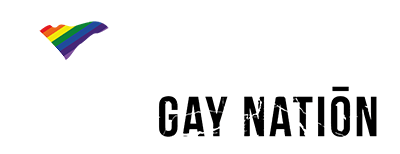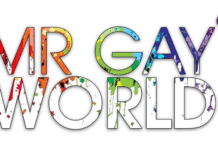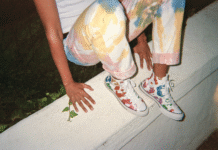
Despite staunch criticism from the West, Russia is continuing its crusade against the rainbow community in defence of what it calls “traditional family values”.
Coming into effect on January 10, was the recent ruling of the Supreme Court of Russia, which on November 30, deemed the “international LGBT+ movement” an extremist organisation, thereby banning all its activities in the country.
The ruling was prompted by a motion from the Ministry of Justice on the grounds that “the LGBT+ movement incites social and religious discord”. The hearing was carried out behind closed doors and the full transcript has not been publicised, sparking debates as to what the decision means exactly.
What makes this ruling complicated is that the “international LGBT+ movement” is not an existing entity. Not only does this make it unclear what particular organisations the ruling is targeting, but it also means that there is no specific defendant who could file an appeal, effectively making the verdict indisputable.
Under Russian law, participating in or financing an extremist organisation is punishable by up to 12 years imprisonment. Displaying extremist symbols is punishable by up to 15 days detention for the first offence and up to four years imprisonment for a repeat offence. People suspected of participating in extremist organisations can have their bank accounts frozen and are barred from running for public office.
Many in the community fear that anyone with any association with LGBT+ organisations will be made a target.
Ekaterina Dikovskaya, director of Sphera, an organisation that tackles issues of homophobia and transphobia, said that she fears that legal action may be taken against members of her team, individuals and companies who work with her organisation, those who receive its services, and even those who donate to it.
In response to the ban, LGBT+ people are actively “evacuating” the country and service providers are moving their offices offshore and transitioning their services online.
Yan Dvorkin, director of Centre T, an organisation that supports trans people, said that many of his employees have fled the country, but that those that offer support on the ground, for example, shelter providers, cannot leave and remain in danger.
Dvorkin said that despite the challenges, Centre T will continue to provide services such as counselling, but that these will be offered in an online, audio-only format, and participants will be carefully screened.
Dvorkin also notes that for purposes of safety, Centre T will no longer be able to publicise its services, effectively lessening their accessibility.

The new ruling follows a string of anti-LGBT+ laws passed in recent years, including a ban on “LGBT+ propaganda”, a ban on trans-related healthcare and an amendment of the constitution to prohibit same-sex marriage – all of which have been put in place to “defend the moral fabric of Russia” against the “degenerate West”.
As much as the West demonises Russia, Russia is demonising the West. In a bid to create an ‘us vs them’ narrative, the West’s liberal values are painted as “anti-family” – an antithesis to Russia’s “traditional family values”.
In a heavily conservative and Christian Orthodox society, attacking LGBT+ rights is a political strategy that appeals to voters and allows Putin to highlight his strongman defence of Russian values against the Western threat.
In addition to the international powerplay, there are two internal issues that fuel the fire: a decreasing population and military conscription.
In a bid to bring up population numbers, Russia is actively encouraging the public to have children and raise them in a traditional family environment. In this context, the rainbow community is seen as “infertile” and destructive to society.
Military conscription is also a factor, as authorities fear that if people were able to change their gender markers on official documents, these may be used to dodge military service which is mandatory for a period of one year for males aged 18-27.
Time will tell how stringently LGBT+ organizations will be pursued under the label of extremism, but one thing’s for sure – Russia’s escalating anti-LGBT+ legislations are silencing the rainbow community, and challenging times ensue for all those that are a part of it.
Last Updated on Feb 1, 2024
The news team for Gay Nation love tips from our readers. Got tips or a news story that you would like published? Go here to tell us something.
Visit the Gay Nation store Now





























